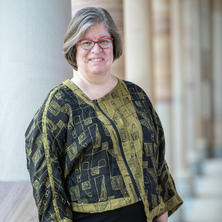
Overview
Background
I currently have a number of research interests, both in Biomedical and well as in Teaching-Focussed Research.
Biomedical projects have traditionally been done with collaborators, and some of the projects have included:
- mechanisms of action of animal venoms and toxins, and we have used the organ bath laboratory and pharmacologoical techniques as bioassays
- study of bitter tasting compounds on pig digestive processes, to better understand activation of bitter taste receptors in vivo
Teaching-focussed interested are around university student behaviour with regard to learning activities and engagement. Universities around the world are grappling with shifts in effective and engaging educational strategies, as well as student expectations, in their delivery of content. In an age where students can do on-line courses at universities far from Australia, academics are carefully considering student engagement and success here at UQ.
- Lecture slots currently have the bulk of contact hours in most courses, with ~39 lectures per course across a semester. These are largely recorded and used as a teaching resource. Student attendance to the traditional lecture spaces has decreased significantly across all campuses, with a UQ average of ~60% across all courses. This type of analysis has recently led to UQ offering smaller venues for larger courses in which there have been patterns of partial attendance.
- My work seeks to better understand what motivates students to attend these spaces in their traditional sense and in the transition to an increasing number of flipped classroom models and blended learning, where the academics are less on the stage, and are instead facilitating activities for learning, while students will be engaged in learning content largely outside the lecture slots.
- "Embracing the Unknown" Experience in third year science courses is also an interest, in which research work and its associated uncertainties cause varying levels of anxiety in some students. Best understanding this process and supporting students through it is also an interest of mine.
Availability
- Dr Mary-Louise Roy Manchadi is:
- Available for supervision
- Media expert
Fields of research
Qualifications
- Doctor of Philosophy, Northwestern University
Works
Search Professor Mary-Louise Roy Manchadi’s works on UQ eSpace
1992
Journal Article
Ganglioside distribution in murine neural tumors
Seyfried, Thomas N., El-Abbadi, Mohga and Roy, Mary Louise (1992). Ganglioside distribution in murine neural tumors. Molecular and Chemical Neuropathology, 17 (2), 147-167. doi: 10.1007/bf03159989
1992
Journal Article
Differential properties of tetrodotoxin-sensitive and tetrodotoxin- resistant sodium channels in rat dorsal root ganglion neurons
Roy, M. L. and Narahashi, T. (1992). Differential properties of tetrodotoxin-sensitive and tetrodotoxin- resistant sodium channels in rat dorsal root ganglion neurons. The Journal of Neuroscience, 12 (6), 2104-2111. doi: 10.1523/jneurosci.12-06-02104.1992
Funding
Past funding
Supervision
Availability
- Dr Mary-Louise Roy Manchadi is:
- Available for supervision
Looking for a supervisor? Read our advice on how to choose a supervisor.
Available projects
-
What are the motivators for attending lectures and other learning activities, directly assessed or not?
In association with the Spaces Management team at UQ, we have access to accurate student numbers across the university so as to track lecture attendance based on body heat entering and exiting lecture venues. Aligning the use of these sensors with course, lecturer and topic will give a rich qualitative data set. In addition to this, surveys will be done with key courses across the university for those which have high attendance and those with low – and drivers identified and shared with the Course Coordinators, along with such learnings being used to inform the Teaching and Learning Community.
A former Honours student has shown that the biggest motivator for lecture attendance between professional, science and therapies students is feeling part of a student cohort. As the professional and therapies students tend to do all of the same courses through their degree, the bonds of friendship and community can run deep and being together with friends in educational spaces has been identified as a main driver for attendance. Science students, however, do not have this profile, as there can be wide variation in courses chosen after first year.
I have data from second and third year science students which asks them to reflect on their experiences as a university student in learning spaces, and such data can be analysed for quality statement and frequency of responses to better inform academics around what students are actually experiencing.
-
“Embracing the Unknown” Experience
In our third year Pharmacology course for Science students (BIOM3401), we have a practical called “Identification of Unknowns”, in which students are given an unknown drug(s), and they are asked to design experiments around identifying which drug class this might be over 2-3 weeks. This has caused some minor (and major!) anxiety in some students, as the activity is assessed as a lab report, with marks being awarded for the arguments made, and not the correct identification.
Students were surveyed before and after the experiments to capture their thinking and concerns, and these data are available for thematic analysis. Such analysis can enable future students to be better supported, or even less supported, depending upon feedback.
-
To Lecture or not to Lecture….that is the question…
We have meta-learning data from second and third year science students about their habits, preferred types of learning and access to information, and their perceptions of live lectures. This data can be analysed thematically, and thus contribute meaningfully to the development of blended learning courses.
Supervision history
Completed supervision
-
2023
Doctor Philosophy
Therapeutic options for divergent snake venom.
Associate Advisor
Other advisors: Professor Bryan Fry
-
2017
Doctor Philosophy
Dietary Manipulation of Feed Intake in Pigs by Bitter Compounds
Associate Advisor
Other advisors: Professor Eugeni Roura
-
Media
Enquiries
Contact Dr Mary-Louise Roy Manchadi directly for media enquiries about:
- Drug effects on nervous system
- Drugs - effects on diseased conditions
- Drugs - effects on health
- Nervous system - impact of drugs
- Neuroscience
- Pharmacology
Need help?
For help with finding experts, story ideas and media enquiries, contact our Media team:
